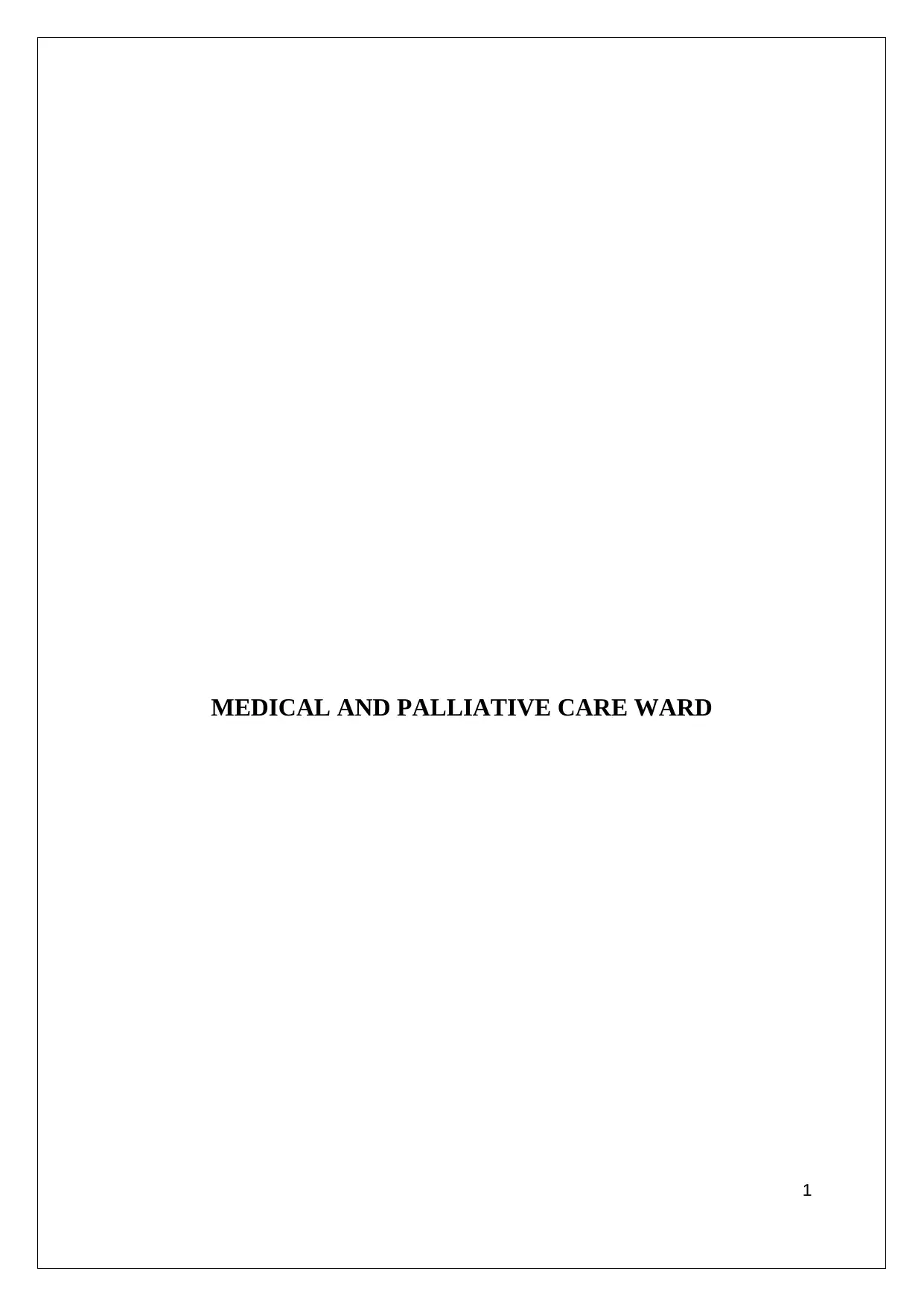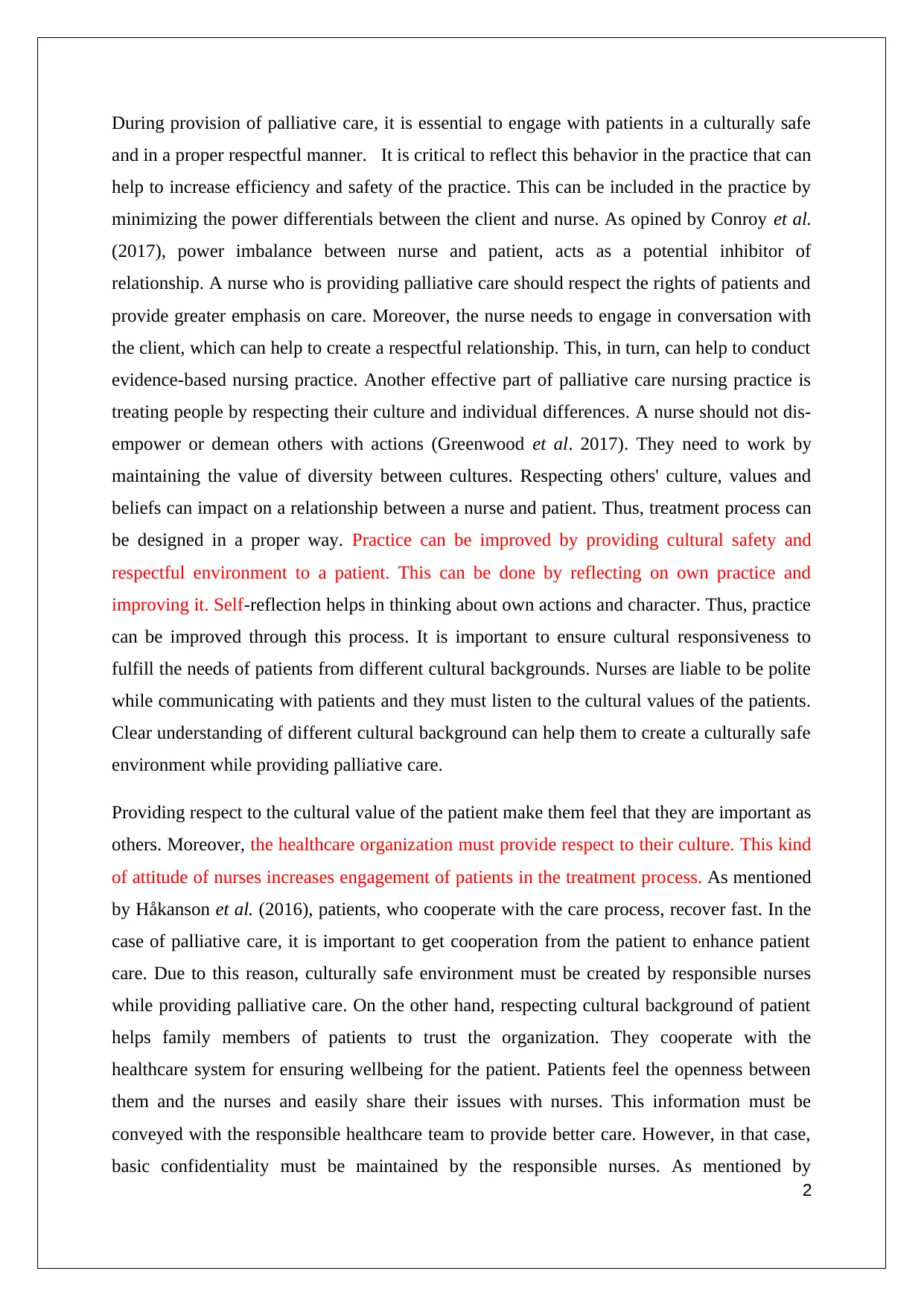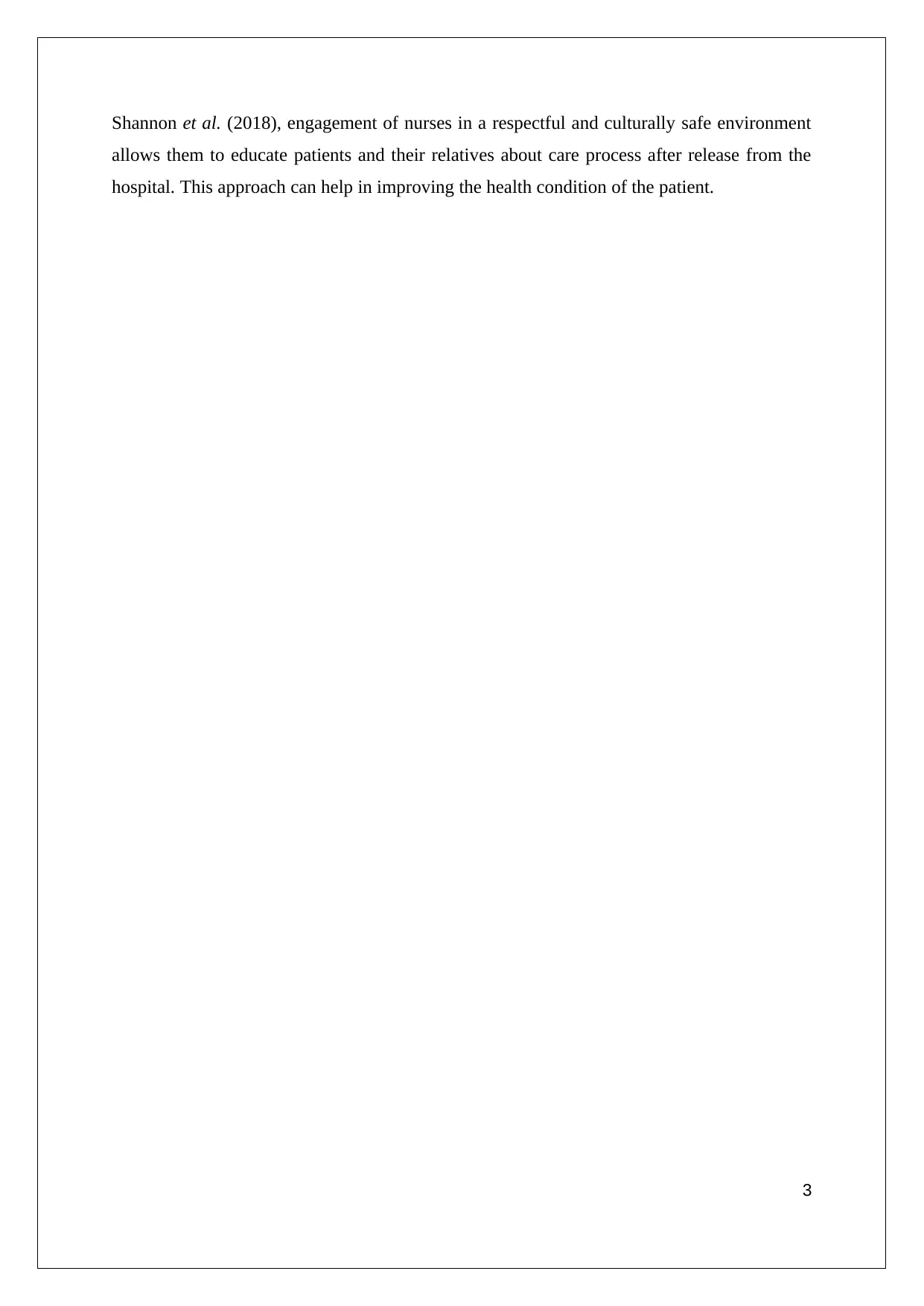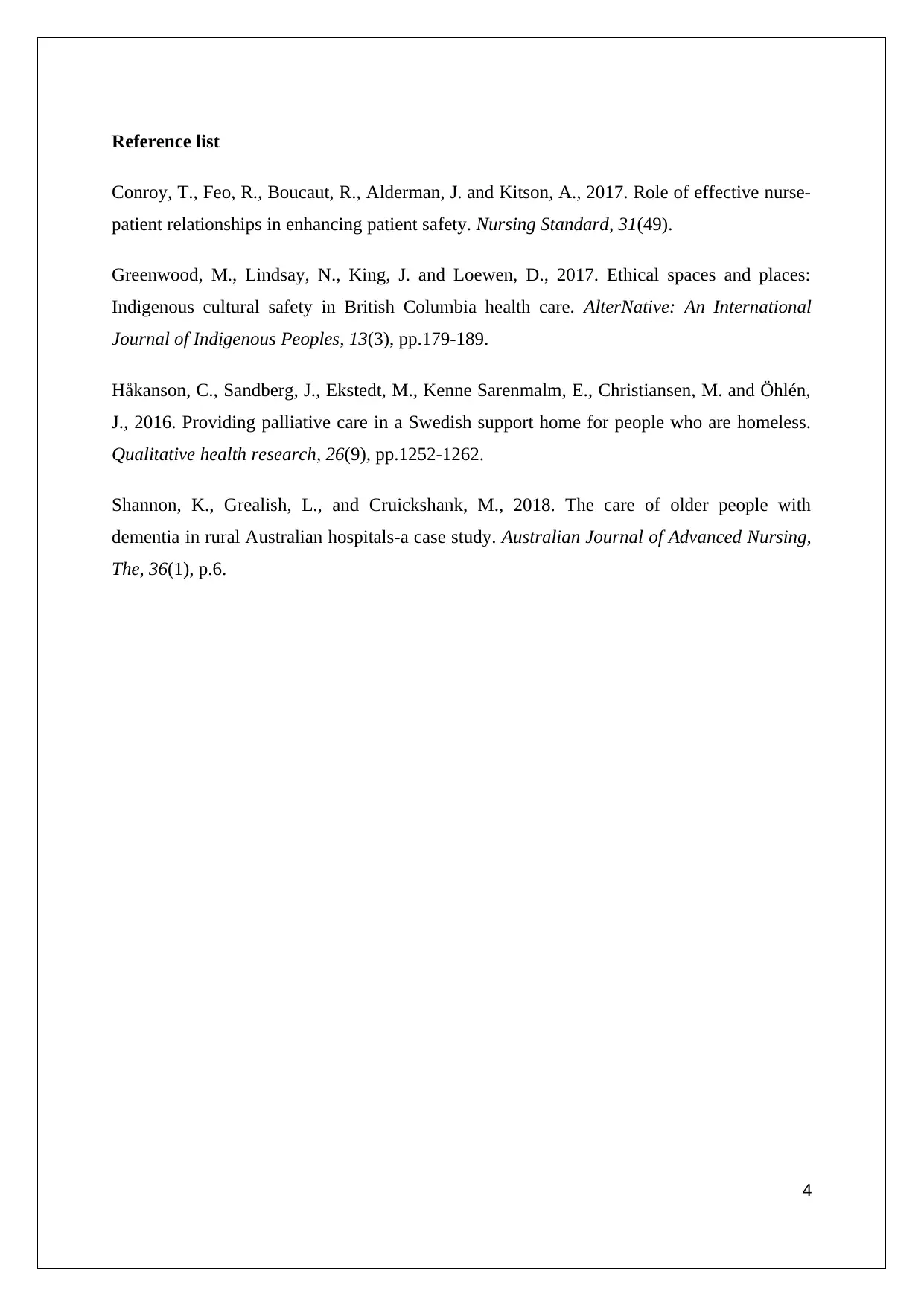Cultural Safety and Respect in Medical and Palliative Care Wards
VerifiedAdded on 2022/10/02
|4
|767
|57
Report
AI Summary
This report focuses on the critical role of cultural safety and respect in palliative care nursing. It emphasizes the need for nurses to engage with patients in a culturally sensitive and respectful manner to enhance the efficiency and safety of their practice. The report highlights strategies such as minimizing power imbalances, fostering respectful relationships through conversation, and valuing cultural diversity. It underscores the importance of self-reflection, cultural responsiveness, and clear communication to create a supportive environment. The report also discusses how respecting cultural values can increase patient engagement, build trust with families, and facilitate better communication within the healthcare team, ultimately improving patient outcomes and satisfaction. References from Conroy et al. (2017), Greenwood et al. (2017), Håkanson et al. (2016), and Shannon et al. (2018) are included to support the arguments.
1 out of 4











![[object Object]](/_next/static/media/star-bottom.7253800d.svg)